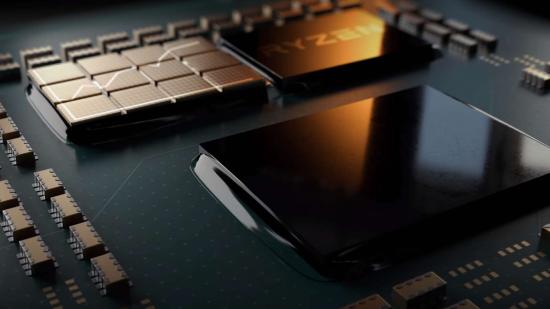AMD Zen 2 only just launched and we’re already talking up Zen 3… the cycle never ends. But that’s great for us PC hardware enthusiasts, and AMD has officially announced that the Zen 3 architecture design has been finalised on the 7nm+ process node ready for its expected 2020 launch.
The confirmation comes from AMD’s recent 2nd gen EPYC launch event (via TechPowerUp). The slides suggest there will be no more intermediary steps in its architecture nomenclature, as has previously been the case – such as the shift from Zen to Zen+. It would appear the shift from 7nm to 7nm+ has been deemed worthy of the Zen 3 title. But while that may imply its a more significant step up on Zen 2 than Zen+ was to Zen, there has never been any mention of Zen 2+, so it’s not like anything appears to have changed over at the red camp.
TSMC’s 7nm+ would be able to offer a performance increase inline with AMD’s previous Ryzen refresh of around 10% according to the pure-play foundry. TSMC’s refined 7nm node, N7+, will utilise extreme ultraviolet lithography, or EUV. Using a short 13.5nm wavelength, EUV is intended to speed up semiconductor manufacturing by reducing the necessary masking and processes required by longer wavelengths to create today’s minuscule processors.
A Zen 2 refresh on the new node seems the likely direction for team red, instead leaving the big changes to Zen 4 in 2021. But we can’t say for sure just yet. Over at AMD’s EPYC launch event the company also confirmed the Zen 4 architecture is in design stage, but, seeing as AMD’s confirmed ‘leapfrogging’ design teams in the past, that’s to be expected.
引き続き開発中 pic.twitter.com/LN1JfMt93w
— Yusuke Ohara/大原 雄介 (@YusukeOhara) August 7, 2019
Zen 4 will likely utilise the 6nm process node: a refined variant of the 7nm process node. Yep, process node naming is often gibberish. While TSMC is well on its way to 5nm, the 6nm node may make for a better fit for AMD as it follows all the same design rules as the 7nm node it currently employs with Zen 2.
AMD’s backwards compatibility pledge also ends next year, which will likely see Zen 3 the last to utilise the AM4 socket and Zen 4 the first of a new socket cycle. Maybe it’s time, the AM4 socket has been with us since 2016.
